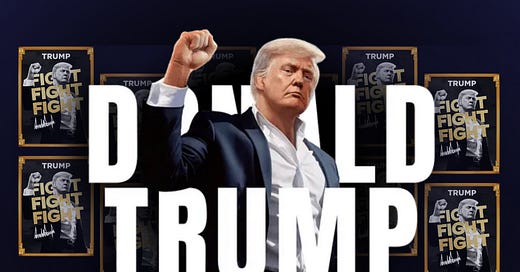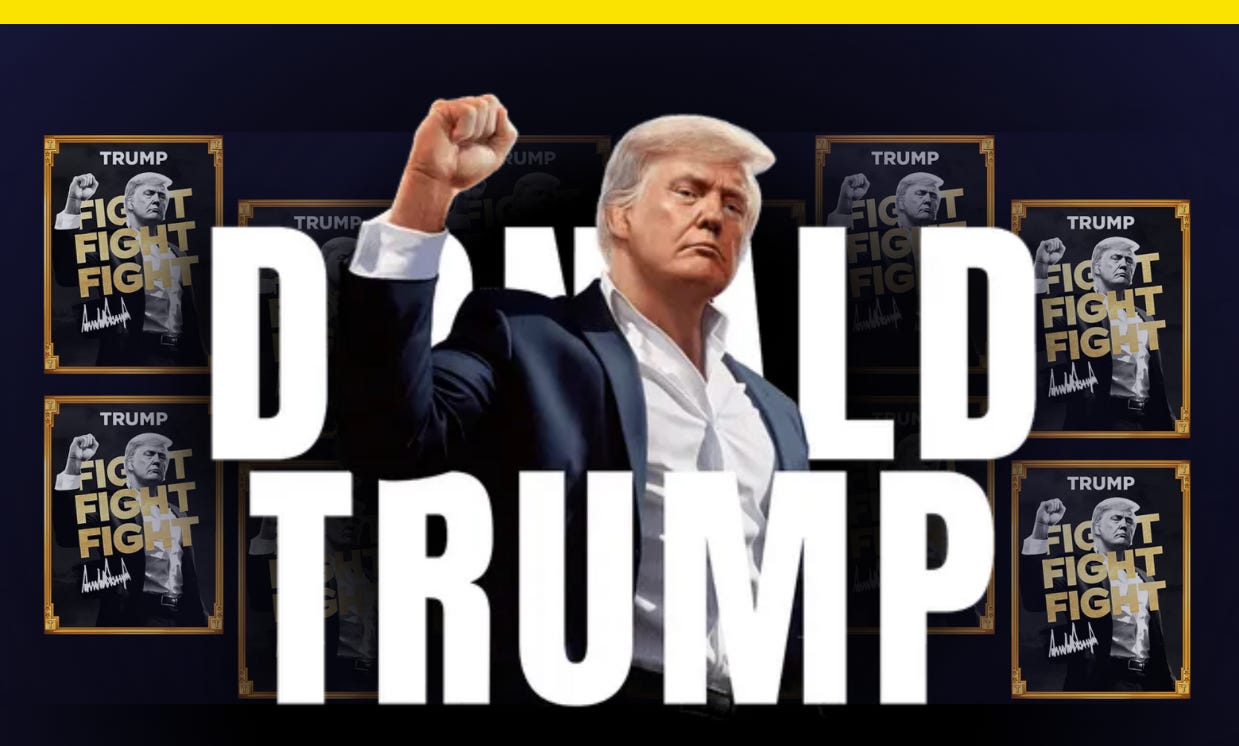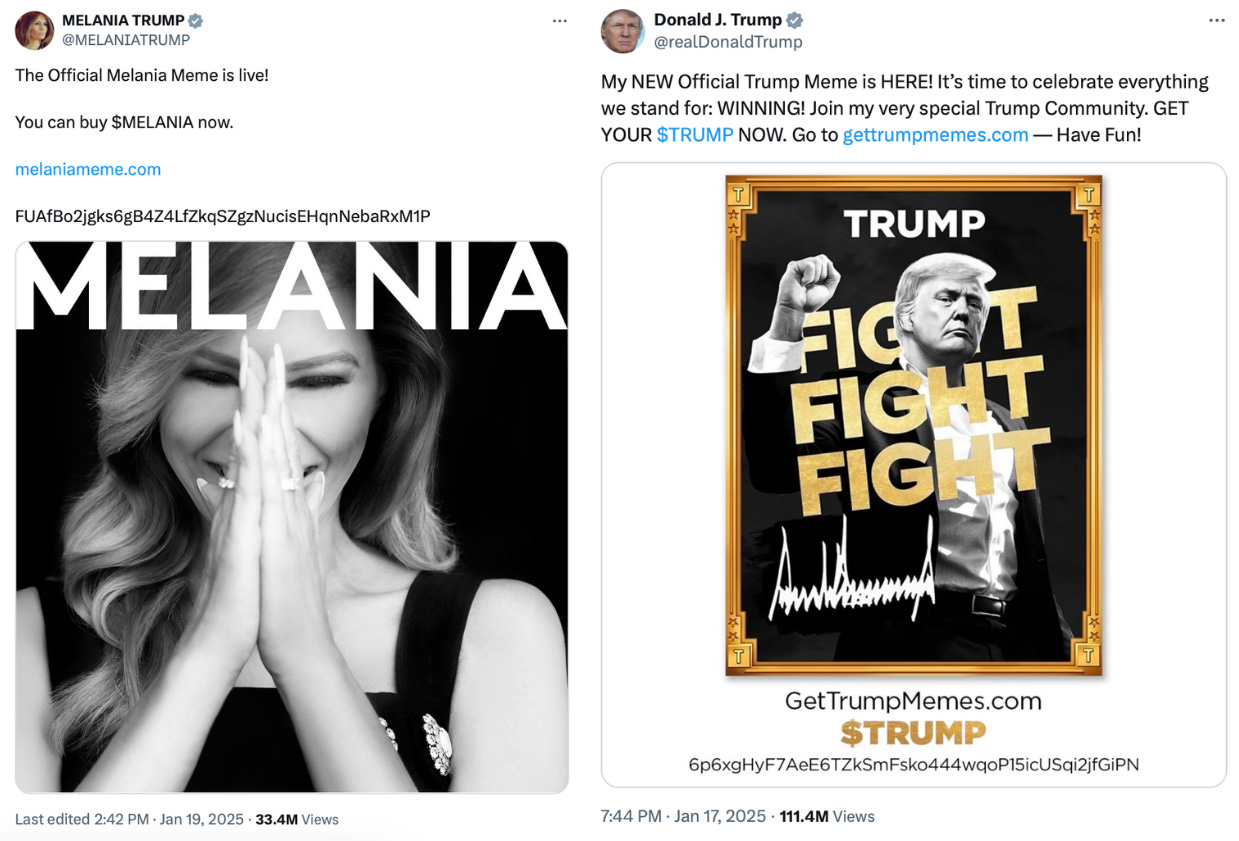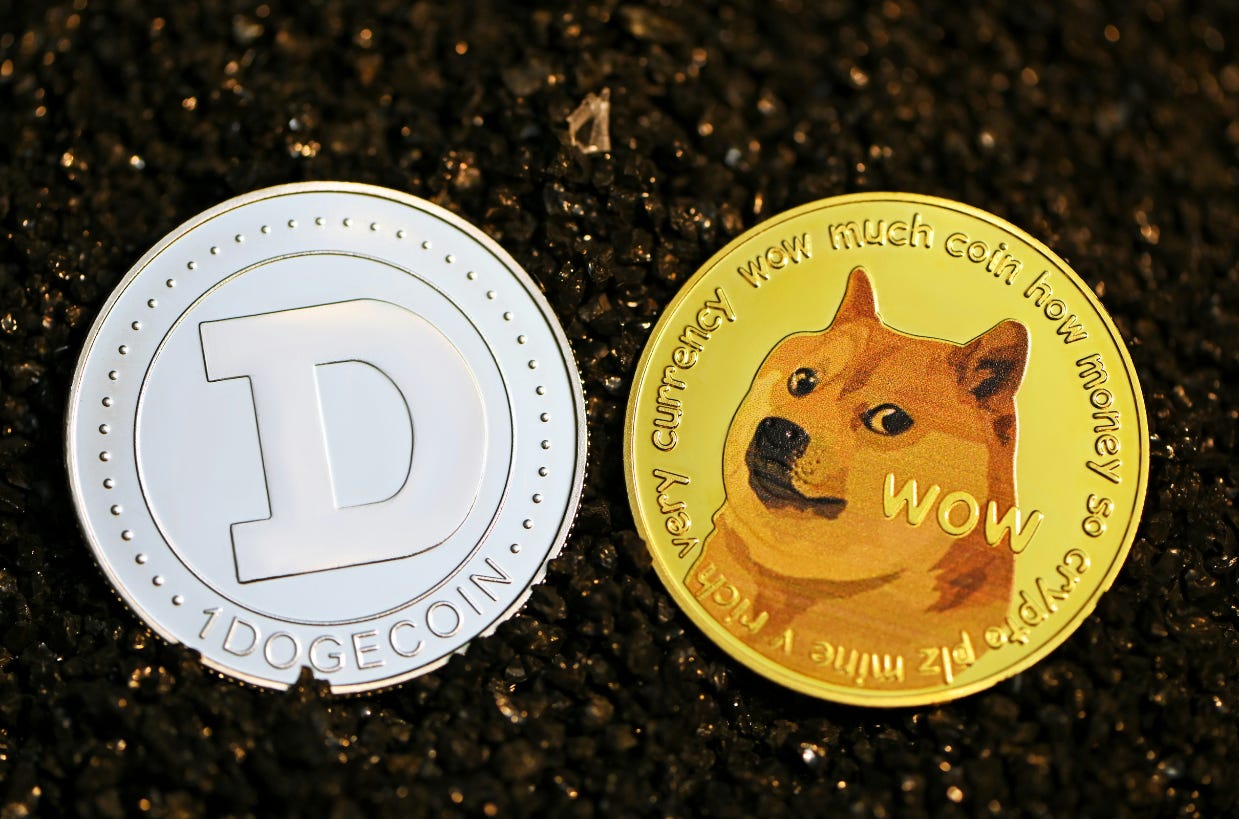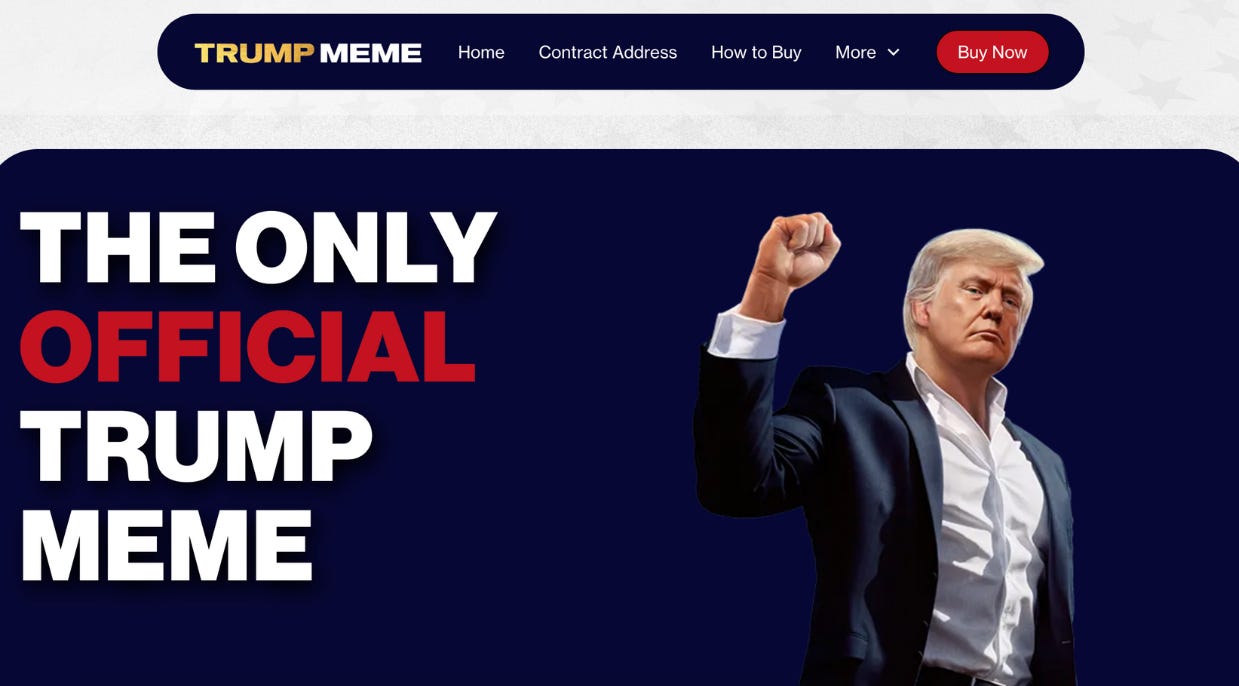Trump’s quest to redefine and profit off of memes
Plus: There’s a fight to trademark the city of Dallas' logo
Hello, in this issue we’ll look at the shifting definition of “meme” in the second Trump administration, and how Dallas found itself in a fight over its city logo.
Scroll to the end to see: my favorite Trump meme 🪙
Trump’s quest to redefine and profit off of memes
How’s this for drain the swamp: President Donald Trump’s media and technology company is now getting into financial services that will require approval from his own government, even as he delves deeper into cryptocurrency in an attempt to redefine the very definition of a meme.
Trump Media and Technology Group, which operates Trump’s social network Truth Social, announced Wednesday it was launching Truth.Fi. It’s a financial services and fintech brand that will invest up to $250 million in traditional investments, cryptocurrencies, and exchange-traded funds, or EFTs, which require Securities and Exchange Commission approvals, and they’re partnering with Charles Schwab, a brokerage firm, whose namesake’s granddaughter Samantha Schwab was named deputy chief of staff at the Treasury Department.
It’s Trump’s latest push into crypto following the Inauguration eve launch of his and wife first lady Melania Trump’s first-ever cryptocurrencies. Visit their respective cryptocurrency sites, though, and you’ll notice something missing: the full word “cryptocurrency” isn’t used once. Instead, the Trumps say they’re selling “memes.”
Ask a typical internet user their favorite Melania meme, and you’re more likely to hear about a funny image of her hat than the photo being sold as her cryptocurrency showing her smiling with hands folded that was shot by photographer Regine Mahaux (her husband’s “meme” is an illustration of him pumping his fist with his signature and the words “Fight, Fight, Fight”). But according to the official site melaniameme dot com, “Melania Memes are fungible crypto assets created and tracked on the Solana blockchain.”
Author and evolutionary biologist Richard Dawkins coined the term meme in his 1976 book The Selfish Gene as a play on the word gene. If a gene is the building block of genetics, a meme is the building block of culture, a fad, fashion, or idea that spreads and evolves from person to person, shaping our social norms.
Since the halcyon days of BuzzFeed in the 2010s, the term has taken on a more colloquial, internet-centric meaning for a joke format that can be screenshot and shared, often with text over an image (first in Impact font, now in TikTok Sans). Now the Trumps are at the forefront of an attempt to redefine it again.
Early internet memes found various ways to make money, like famous cats or viral Tumblrs that got book deals, but it was the rise of NFTs in 2021 that gave memesmiths a novel way to profit off their IP. Sure, anyone can download a gif of Nyan Cat, but only one person can own the one-of-one NFT, which sold that year for nearly $600,000. The original Doge meme sold in June 2021 for a then-record $4 million.
Memecoins take that concept further. Why just sell one Doge NFT when you can mint an entire cryptocurrency around it? Today there are more than 147 billion Dogecoins, and when Haliey “Hawk Tuah” Welch sought to profit off her 15 minutes of fame, she minted the Hawk Tuah coin, which went about as well as you’d imagine. The completely humorless Trump family “memes” follow suit.
Egg prices are up since Trump took office, but “Trump Meme” prices are down, from a high of about $70 the day before his second term began to $27 today. The “Melania Meme” has fallen from about $13 to $2 in roughly the same time period.
“Memecoins are considered risky and volatile trading assets,” according to Coinbase, a crypto exchange that welcomed former Sen. Kyrsten Sinema (I-Ariz.) and Trump 2024 campaign co-manager Chris LaCivita to its global advisory council this week. “If you find distinguishing between memecoins, scams, and cryptocurrency confusing, you're not alone.”
The Trump sites note in the fine print when you scroll all the way to the bottom that these memes aren’t intended to be investments. Instead they’re just for fun.
“Trump Memes are intended to function as an expression of support for, and engagement with, the ideals and beliefs embodied by the symbol ‘$TRUMP’ and the associated artwork, and are not intended to be, or to be the subject of, an investment opportunity, investment contract, or security of any type,” Trump’s site reads.
Still, this new definition of a “meme” raises questions about ethics at the intersection of government, finance, and digital culture. Trump’s new venture suggests a future where culture and influence itself are not only on the blockchain, but up for sale.
Previously in YELLO:
There’s a fight to trademark the city of Dallas' logo
Dallas is prepared to spend big to protect its logo. In fact, the Dallas City Council voted last week to spend up to $200,000 as part of a federal lawsuit to cancel the trademark of Triple D Gear, a Dallas apparel company that the city argues uses a logo so similar to its own that it causes confusion.

